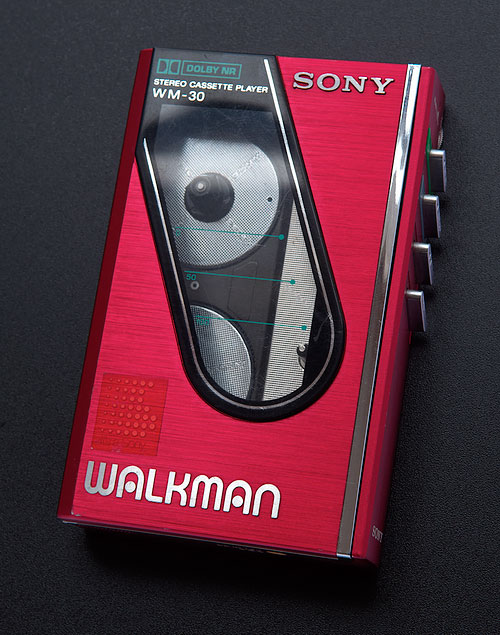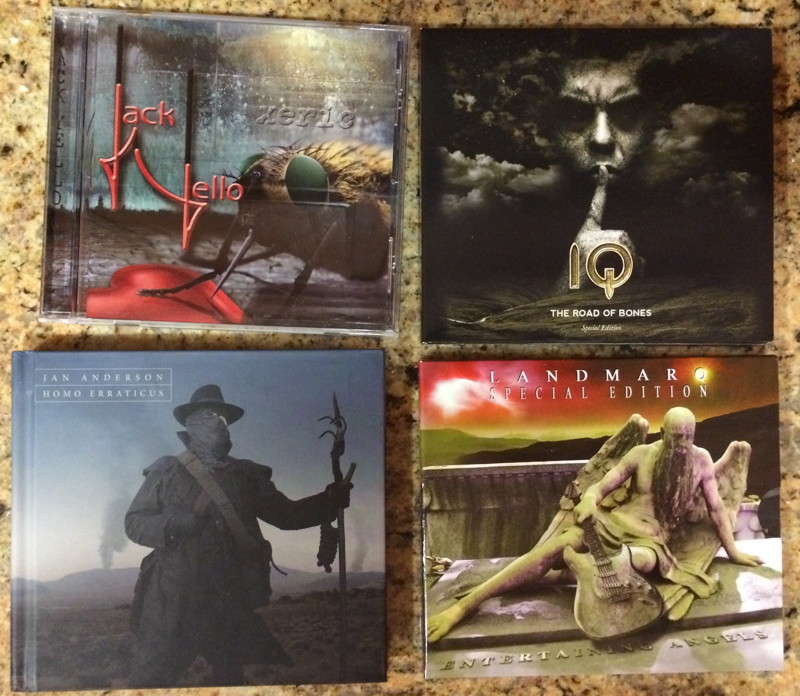Earlier this year I finally got rid of something I’d owned for over 30 years, an Aiwa AD-WX808 dual cassette deck.
Growing up my parents – well, really my dad – had a component stereo system with a record player, receiver, and speakers. At some point one of them bought me an all-in-one record player/radio/tape deck which I used through high school. I remember the first LP I bought was the Return of the Jedi soundtrack. And during high school I bought a lot of 45 RPM singles, and a few LPs. As I say occasionally, I wasn’t really into 80s music, so I was more likely to have MTV or a local radio station on in the background than listen to music that I owned. I also had a few Walkman and competing products for playing tapes and listening to the radio, which I used pretty regularly. And at some point we got a boombox which we mostly used downstairs.
All this largely changed in college, when I discovered 60s and 70s rock music. My gateway drug – oddly enough – was Styx, but I soon moved on to The Who and various progressive rock groups. A guy down the hall from me had a boom box with a compact disc player, and I bought a few CDs that year.
That summer – 1988 – I researched and bought my own component stereo system. If I recall correctly, I bought the four components at two now-defunct stores, Lechmere and Tweeter. Tweeter was an audiophile store and they recommended a receiver and speaker set, while at Lechmere I bought a CD player, and the Aiwa tape deck. I shlepped this set back and forth between home in Massachusetts and college in New Orleans every year, first by shipping everything (along with my Macintosh SE) – amazingly nothing ever got damaged – and in 1990 by driving them in my new (to me, it was a 1987 Honda Civic) car. The Aiwa tape deck was great for copying tapes that for some reason I didn’t have on CD, and its recording quality was quite good (or maybe my hearing is just bad, hard to say). The going rate for a component stereo at the time was around $300 per piece, so I probably spent $1,200 on the whole system. Seems kind of ridiculous today, when you can buy a powerful laptop computer for less.
Over the next ten years I bought hundreds of CDs – and custom-built cases to hold them. My car also had a tape deck, and I regularly put together mix tapes to listen to in the car, while I usually listened to whole albums at home. At some point I replaced the CD player with a 5-disc changer. I remember there were also 6-to-12 disc “magazine” models, which were supposedly less reliable. In hindsight I bet that was technically true, but probably not enough to matter.
(My vinyl records from high school didn’t make the transition to the new media era, but there wasn’t much there I missed. I’ve always thought vinyl was a cumbersome and mediocre media format anyway. CDs are a thousand times better.)
At some point I bought a Discman, and an adaptor to be able to use it through the tape player in my car, but portable CD players were pretty clunky and skipped easily (this got better over time, but was never great), so I didn’t use it a lot.
Of course, all this changed again between 2001 and 2003 with the advent of iTunes, iPods, and eventually iPhones. I ripped all my CDs into iTunes – several times as the encoding tech got better, actually. I kept the CD player for a long time, but it didn’t get much use after that. I did buy a new receiver and speakers since the old ones were nearing the end of their lives. Once I bought some Airport base stations for wi-fi in my house, I connected one of them to the receiver and then if I wanted to listen to my music library I would play it from my laptop to the receiver. I also played our television’s sound through the receiver.
In 2009 I bought a new LCD television with much better sound, and then using the receiver for the TV sound was just a pain in the ass. We still used it for the radio, until 2017 or so when Debbi got a Google Home and we started using that instead since it was so convenient. A few years later we bought a HomePod, and the Google Home took an accidental spill onto the floor and never recovered. The HomePod’s radio streaming capabilities were a bit iffy at first but they’ve gotten a lot better.
A few years ago I went through my CDs – which had been sitting in boxes since we moved to our current house in 2011 – and sold over two thirds of them to Rasputin Music, getting quite a bit more cash for them than I’d expected. I kept some by my favorite bands, and have bought a few more since – maybe three or four per year, many of them the spiffy remastered editions of Jethro Tull‘s albums. But usually I just rip them and put them in a bookcase. At time point if I do another purge I assume I’ll just throw them out unless it turns out some of them have significant resale value on eBay. I got rid of one of the custom-built cases, and the other is sitting in the garage holding random crap.
Anyway, I kept the Aiwa tape deck for years, planning to eventually digitize a number of old audiotapes I have, most of them bootleg concert recordings that I bought at the Cape Cod flea market in the late 1980s. In particular, a few Jethro Tull (that name again!) concerts which are quite good. But I never got around to it. I did loan the unit to a friend who wanted to digitize some cassettes that he owned, though. Otherwise it’s mostly sat in a closet, literally gathering dust from the pan of cat litter in the same closet.
Finally I decided that I was just never going to use that unit to perform the digitizing – who knows if it even works anymore? Instead I bought a handheld unit from Amazon which I’ll use sometime (if I can remember where I stored the cassettes), and dropped the Aiwa unit off at the e-waste center.
There’s always some old junk lying around to get rid of. We hang on to things because we think it might still be useful, or because we have fond memories of using it, or because we can’t be bothered to get rid of it. Or all three. But for most things, sooner or later its time comes.





